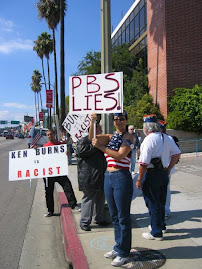
I am periodically asked the questions, “Why did you become a teacher?” or “Why did you choose History as a major?” More fitting queries, however, would ask “How” I decided to become a teacher or focus on the study of History. This is because my decision was pragmatic. I did not have the complete privilege to choose.
Like so many of my Chicano peers, I was not prepared for college out of high school. A big chunk of my gente dropped out (at rates hovering just below or above 50%). I lost contact with many after the ninth grade. For much of my first two years at the community college, I took classes in English and Math that qualified me for transferrable courses to the university. Back then they were openly called remedial classes—I am not sure what they are called now. I was, however, honest with myself about my (in)abilities. So when I received a B grade in Western Civilization I said to myself, “Hey I can do this. I can read and write at a proficient level (I feel). I’ll major in History.”
My parents always encouraged me to go to college after all, even though mom has a Mexican grade school education and dad still wonders how he was granted an A.A. degree. I also knew that getting a university degree would make them happy. It would also buy me time from getting a job. Mom explained the deal as I approached the end of my senior year: “You continue your education or a trabajar!” It’s nice being one of two kids. So I became a History major because I believed it would enable me to survive in academe. After taking a Chicano Studies class at Moorpark College, I also sensed that the study of History could help me understand why very few Chicanas and Chicanos held positions of authority in and out of school.
Along the way I realized that I desired a career that offered significant security from unemployment. Memories of tension in the household when my dad was laid off from his job played a significant role in my decision to become an educator. Growing up, I was not aware of teachers being fired—at least not for carrying out their duties. Sure teachers worked side jobs to supplement their salaries, but they were always employed.
As a History major I also flirted with the notion of becoming a lawyer. Be a teacher or become a lawyer. What else does a History major do? I briefly joined Fresno State’s Chicanos In Law club. But after I received my LSAT score I knew the career of an esquire was not in the cards. “I will teach at the high school,” I said to myself. To enter a teacher credential program at the Cal. State all I needed to do was to pass the CBEST. How hard could that be? Well, it can be difficult if your math skills are not up to speed. I eventually passed the Math segment of the CBEST—only after taking a College Algebra class at Oxnard College as a post-baccalaureate. I felt validated by the world of standardized tests—a mundo that my people do very poorly in, for a host of reasons.
While I was at Fresno State I stopped by the office of a History professor who advised students on the social science waiver program for prospective teachers. He asked me to return as he had a migraine. I never did. After I compared the added course work required to become a social science teacher with that needed for a Masters degree, graduate school was more attractive. And it required no CBEST. I finalized this path as my undergraduate mentor-professor expressed his expectation for me to pursue a Masters. So I did. The life of a history professor appealed to me as I once read a career guidance article that stated that History professors had one the longest life expectancies. In addition to this, in regularly walking past the office of one of my favorite History professors I often saw him in his chair with his legs kicked up on his desk as he read a Chinese language newspaper. That’s when I said to myself, “That’s what I want to do.”
After I graduated with a Masters in History, I returned to Oxnard to search for work. I couldn’t teach because you needed a credential to do so in the K-12 system. So I worked for UPS unloading trailers and loading trucks. This was the most physically demanding work I ever experienced. I also went through a teacher mentorship program at the Ventura County Community College. I shadowed a History professor who taught Western Civilization classes. This experience helped me land my first full-time gig at Cypress College.
During one of my probationary evaluations at Cypress my boss encouraged me to obtain my doctorate. So I applied to the Claremont Graduate School. While I was at Fresno State my mentor spoke highly about its Ph.D. program. Claremont was not terribly far from Buena Park so I applied and was accepted.
To be continued.
fpb
